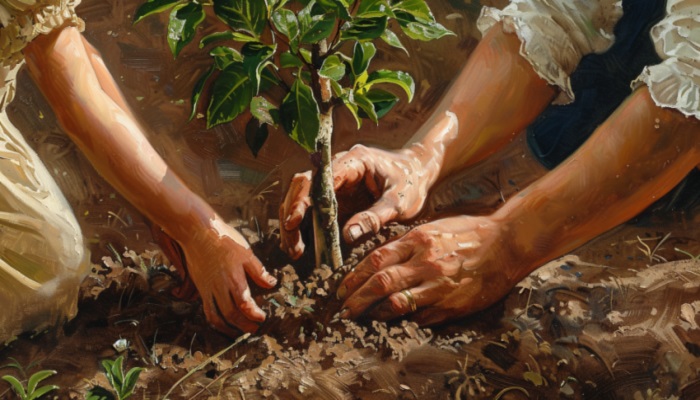
Charlotte Brontë is renowned for her beloved classic Jane Eyre, but in her lesser-known novel Shirley, she offered valuable insight into the noble quality of gratitude when she wrote:
I am almost contented just now, and very thankful. Gratitude is a divine emotion: it fills the heart, but not to bursting; it warms it, but not to fever.
Our recent research as social scientists indicates that for many, “Gratitude is a divine emotion.” Although we did not ask directly about gratitude, many participants spontaneously discussed gratitude in their spiritual lives and their relationships.
Gratitude, however, is far more than an emotion. Over the past twenty-three years, our in-depth interviews with about 200 exemplary, marriage-based families for the American Families of Faith National Research Project have indicated that gratitude seems to frequently serve as a “gateway virtue,” a proverbial on-ramp to a freeway of other positive attributes and relational processes. In short, gratitude seems to be a catalyst for other “goods or values.” Here, we excerpt some of our participants’ gratitude-related revelations and interview gems.
Theme 1: Aspects of Gratitude
Two aspects of gratitude, functional and directional, were described by the 476 parents and their adolescent children in our study. The functional aspect emerged as individuals and families spoke of what they were grateful “for,” including blessings, religious faith, family, and God’s influence in their lives and relationships. We will italicize some words and phrases for emphasis.
To read the entire article: Public Square Magazine


